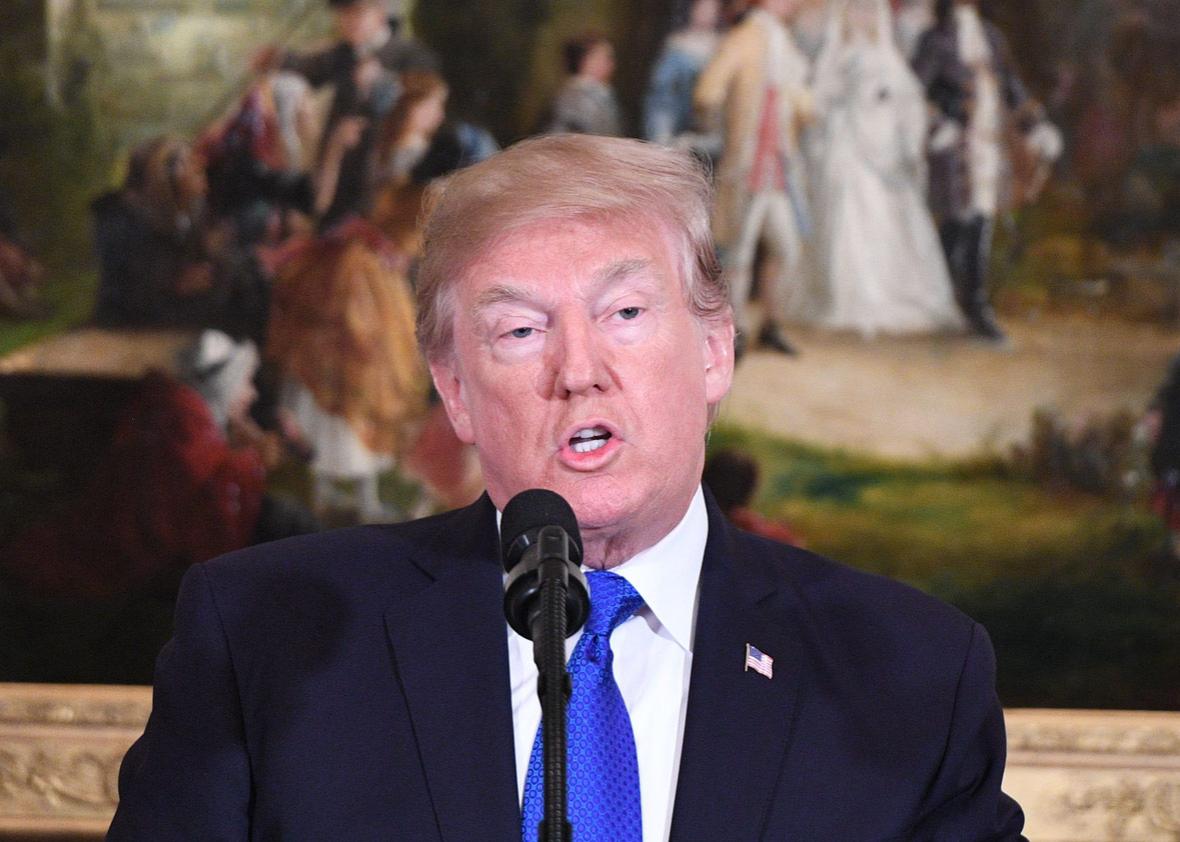On Sunday morning, a man opened fire on a congregation at a Baptist church in Sutherland Springs, Texas. According to the most recent count, the gunman killed at least 26 people. The attack, which is the 378th mass shooting in 2017, was met online with a mixture of sadness and cynicism. Many felt deflated by the knowledge that no matter how bad things get, Congress and the White House remain unwilling to consider gun control.
President Trump, who is currently traveling in Asia, explained why he thinks gun control is definitely not the problem when he answered questions about the shooting on Monday morning:
Mental health is your problem here. This was a very—based on preliminary reports—a very deranged individual. A lot of problems over a long period of time. We have a lot of mental health problems in our country, as do other countries. But this isn’t a guns situation. I mean, we could go into it, but it’s a little bit soon to go into it. … But this is a mental health problem at the highest level. It’s a very, very sad event. It’s—these are great people, and a very, very sad event. But that’s the way I view it.
There’s a lot about the president’s statement—and others like it—that just doesn’t add up. For one, it plays into the trope that the main thing we should blame for gun violence is not guns but mental illness, even though the vast majority of people with mental illness are not violent (though they do have higher rates of self-harm and suicide). This tendency likely stems from the desire to name our demons, but if you’re looking for a better way to categorize perpetrators of gun violence, your best bet would be to label them “toxically angry.” Many of them seem to suffer from an inability to regulate their emotions, not exactly a mental illness in the traditional sense. It also increasingly seems that many share a history of domestic abuse, using their partners or family members as an outlet for all that aggression long before they grab a gun and head to a church or a school or a movie theater.
In a way, Trump’s decision to evoke mental illness makes some sort of sense: Given what we know about anger, it seems possible that providing people struggling with anger issues the right mental health care could help (though given the ban on studying gun violence, we don’t really know that much for certain). But just like with gun control, it’s not like Trump is actually working to improve America’s policies around his new scapegoat of choice.
In February, Trump signed into a law a bill repealing an Obama-era policy designed to limit access to guns among people with certain mental illnesses. The law, which received its fair share of criticism, would have required the Social Security Administration to flag some people receiving disability benefits for background checks should they try to buy a gun. Trump made this choice because it “could endanger the Second Amendment rights of law abiding citizens,” according to a statement from the White House at the time.
The plan to dismantle the Affordable Care Act, which the president promises will continue in the new year, jeopardizes mental health care access for those who need it most. In the past few months, the Republicans in Congress have tried to cut away at certain health care coverage requirements they don’t like, including the mandate to provide maternity care and, yes, basic mental health services. Right-wing leaders have also worked to roll back the Obama-era Medicaid expansion, which is the largest source of mental health and substance abuse treatment in the country. The program, which currently provides more than 1 million struggling Americans with care, is one of the only sources of federal support for Americans caught up in the opioid crisis. Trump’s plan to combat that crisis, released late last month, did not meaningfully expand access to mental health care or treatment programs, either—instead he’s peddling the same “just say no“ rhetoric that failed the Reagan administration.
The shooting at the First Baptist Church, like so many other mass shootings in the United States, is not an inevitable result of someone having a “mental health issue.” It’s a gun issue, an anger issue, a social issue—all problems that could have policy-based solutions. Unfortunately, Trump has no plan to stem this tide regardless of what he thinks is to blame.
